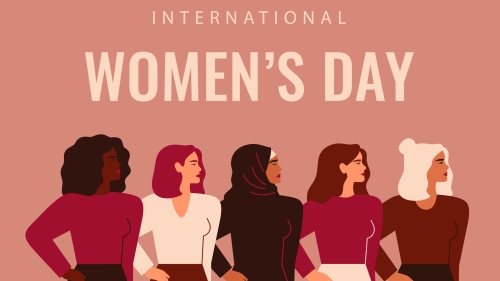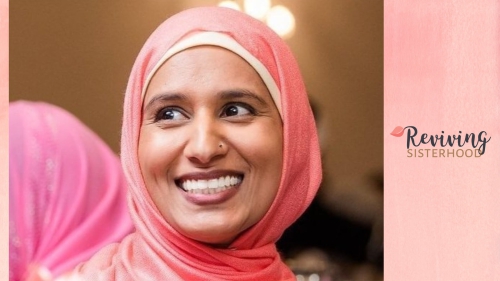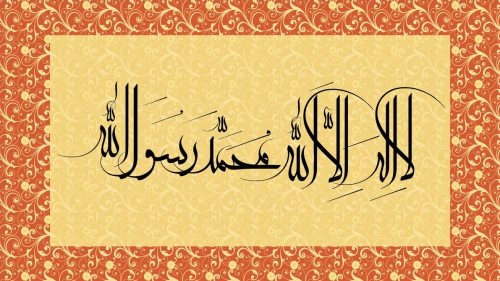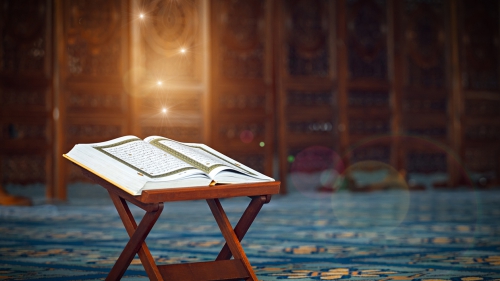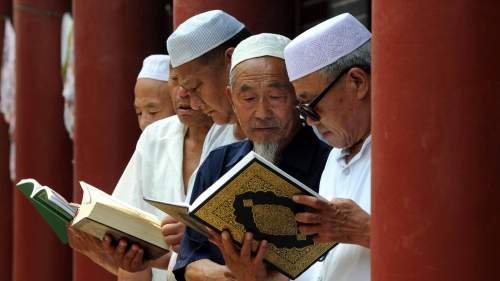#MeToo: Lessons from the wives of the Prophet for today

In light of the recent allegations of sexual misconduct by women and whether their accounts are believed or not, I was reflecting on the accusations made against Prophet Muhammad’s wife, Aishah. Her story comes to us from contemporary sources, but more importantly, it is confirmed in the Quran.
Aishah was one of the wives of the Prophet, and she was accidentally left behind during a return from one of the battles. A young man discovered her and brought her back to Medina on his camel the next day. When the two entered the city, rumors spread that the young Aishah had been guilty of infidelity. No one believed Aishah when she protested her innocence---not her father, Abu Bakr, not her mother, not even the Prophet himself, who asked her to turn to Allah in repentance and Allah would be merciful. Aishah refused to repent for something she did not do. She cited the worries of Jacob, the father of Joseph, who grieved his son’s absence when he had been taken away by his brothers, and she said, like Jacob, she would await with patience for help from God. Soon the Prophet received the revelation affirming her innocence and the gravity of slandering women. [Quran 24:11-17]
The people of her time did not believe the young Aishah. Are we similarly guilty of being dismissive of her legacy and that of the other wives of the Prophet? I began to ask myself, what have I been missing that their lives could teach us?
By examining the historical record, we know that the Prophet’s first wife, Khadijah, was the first person to bear witness to the Message and become Muslim. Following Khadijah’s death, the Prophet entered into multiple marriages. The marriages are typically portrayed as a way the Prophet forged political alliances and set an example for the other companions to marry divorced women and widows of the martyrs. He was becoming, not only a spiritual leader, but also the political leader of the nascent Ummah. But was there a greater role that these women were supposed to play? The Quran tells us that the answer is yes.
Surah Al-Azhab, Surah 33, give us the best explanation of the role of the Prophet’s wives. In this surah, Allah speaks directly about and to them.
The Quran says to these women in Surah 33:32: O wives of the Prophet! You are not like any of the other women. They are told specifically by Allah that if they wanted the life of this world and did not want the responsibility of being a wife of the Prophet, they could be released from the marriage. Allah gave them a choice, but all of them embraced their role as a “Mother of the Believers [33:6].” Furthermore, this role of “Mothers of the Believers” was not biological. None of the women who married the Prophet after Khadijah bore him children who survived infancy.
The verse continues: If you do fear Allah, be not too complaisant, soft, of speech, lest one in whose heart is a disease should be moved with desire. But speak a speech that is just. [33:32] First, Allah is telling them that they are not like other women, and, second that they are commanded to speak, not softly, but to speak up.
The Quran says that the wives are to stay quietly in their homes and not make a display of themselves, “like that of the former Times of Ignorance; and establish regular prayer, give regular charity, and obey Allah and his Messenger. And Allah only wishes to remove all abomination from you, ye members of the Family, and to make you pure and spotless.” [33:33]
Continuing with its direction to the wives, [33:34], the Quran tells them: Recite what is rehearsed to you in your Homes of the Signs of God and His Wisdom, for Allah understands the finest mysteries and is well-acquainted with them. The wives are told to learn the wisdom from the Prophet in their homes, to purify themselves through practicing the tenets of the religion, and to recite that sacred wisdom to others.
In the 7th year of Hijra, when the Muslims had fled to Medina, the revelation came to the Prophet that after that time, he was not to marry any other wives, nor was he to change any of the wives he had already married [33:52]. At this point he had married 12 wives. We know from previous scriptures that there is a significance to the number 12. Jesus had 12 disciples; Jacob had 12 sons. Both the disciples of Jesus and the sons of Jacob were commanded to spread the message of their prophet, to believe in and practice the religion of one god. In the same way, the wives of the Prophet were told by Allah in this surah to recite the “Signs of God and His Wisdom.”
There is evidence that the wives followed this commandment from Allah. We know that four of the wives were hafiz, they had memorized the entire Quran. The Prophet’s wife, Hafsa, set down the text in the order it is today. Seven of the wives gave legal decisions and were judges and scholars, not just to women, but to the Ummah. One of the sahabahs or companions after the Prophet’s death reportedly said: “When the wives of the Prophet are among us, why should we enquire from anyone else.”
Perhaps what Allah is telling us is that the twelve wives of the Prophet, beginning with Khadijah, were sent with the special role that in the past had been delegated to men --- the sons of Jacob, the disciples of Jesus, all men. But for this new religion, it was women who were sent in that role. They were sent as the people closest to the Prophet, as his wives. From the first wife, Khadijah, the first one to accept the Message and become Muslim, to the last wife, Maryum.
If one wanted to assign the task of carrying out the Message that the Prophet was given, and one wanted women to do it, what other way could there be except as wives? It would have been improper for him to be in their company for the time it would take to convey the teaching if he did not have the unlimited access and protection that marriage gave them. As the Prophet’s wives, even after his death, the Quran instructs that no men were allowed to marry them [33:53]. The wives were freed to continue to spread the message. They were indeed as Quran states “not like any other women.”
The names of the wives of the Prophet (May Allah be pleased with them) in the order of their marriage are: Khadijah, Saudah, Aishah, Hafsah, Zainab bint Khusaimah, Umm Salamah, Zainab bint Jahsh, Juwairiah bint ul Haris, Umm Habibah, Safiyyah, Maimoonah, and Maryum.
These wives were a diverse group of women --- poor, wealthy, young, and old. Before they accepted Islam, they had practiced idolatry, Judaism and Christianity. They were a mirror of the Ummah of Islam that received the Message that the Prophet was sent to deliver. Each had a unique role to play in the history of Islam. Each was chosen and accepted this role. They were called upon to spread a new religion to a society that were majority polytheistic and also did not value women. As referenced in the Quran, it was a common practice to bury female infants alive. They faced a world of challenges that we cannot even imagine, but because of them, Islam spread.
The voice of Muslim women is urgently needed today. Like the wives of the Prophet, Muslim women need to speak up and fight for a new culture based on our Quranic values where women are respected and valued. Females may not be buried alive today, but women are being buried in other ways ----- by being denied full participation in our societies. The world needs the voice of Muslim women in the same way that the Ummah needed the wives of the Prophet, the “Mothers of the Believers.” We need to believe women, listen to women, and reverse the same mentality that made those in her time not believe Aishah.
Gail Kennard writes about faith, gender and politics. She lives in Southern California where she is a small business owner and is an active member of several non-profit, civic and community organizations.
Topics: Wives Of Prophet, Women Values: Tolerance
Views: 7545
Related Suggestions









